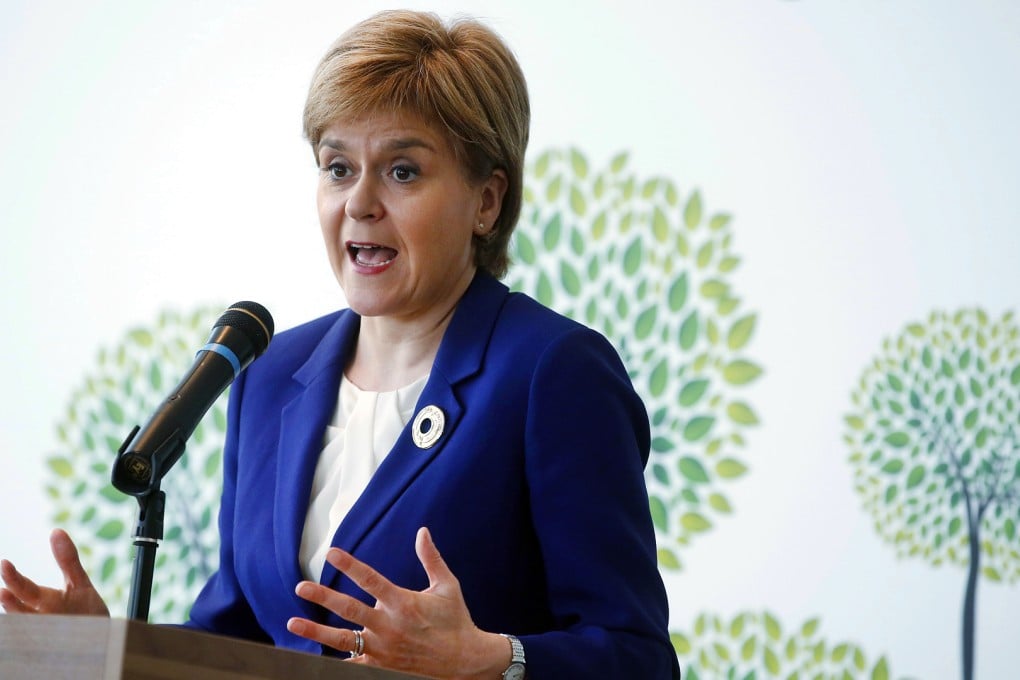Nicola Sturgeon, visiting China and Hong Kong, raises her profile and promotes Scotland
First Minister Nicola Sturgeon says on visit to Hong Kong her modern nation has far more to offer than its famous whisky and salmon

It was a neat trick: she was "the most dangerous woman in Britain" and the most popular public figure in the country at precisely the same time.
With political schizophrenia of that magnitude afoot, something big had to be happening. So in a way, earlier this year when First Minister of Scotland Nicola Sturgeon led her independence-seeking Scottish National Party to a landslide general election victory in the northern part of what remains the United Kingdom, it was not really a surprise.
The unprecedented election result, which followed a "no" vote in a closely fought referendum on independence that energised Scotland late last year, catapulted Sturgeon from obscurity onto the international stage.
READ MORE: Scottish referendum could be lesson in political engagement for Hong Kong, says First Minister Nicola Sturgeon
Within weeks, the electrician's daughter from small-town Scotland, whom the right-wing Daily Mail dubbed Britain's "most dangerous" woman, had out-polled Angelina Jolie in a respected poll of the world's most powerful women and appeared on primetime American television trading wise-cracks as a guest of Jon Stewart on The Daily Show.
On her maiden visit to China, including Hong Kong, and her first interview with a newspaper on Chinese soil, Sturgeon told the South China Morning Post yesterday of the importance she places on the relationship between the two countries.
She was particularly struck by what she described as a keen "knowledge and interest" here and on the mainland in "modern" Scotland, as well as the traditional Scottish trademarks of whisky, golf and salmon.
Not surprisingly, given the sensitivity of the issue of independence in these parts, Scotland's first minister - a position within the United Kingdom's political structure which, for the uninitiated, is a bit like that of the Hong Kong Chief Executive in relation to China, except Sturgeon can be removed by democratic vote and the country she leads has a fully directly elected, devolved parliament with extensive powers, excluding defence and foreign affairs - stayed clear of the thorny topic.